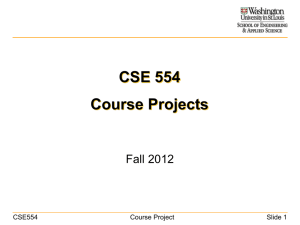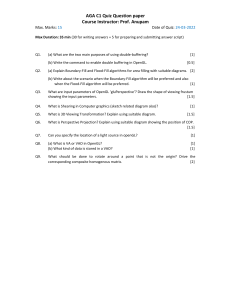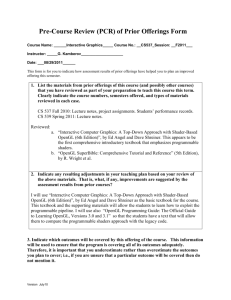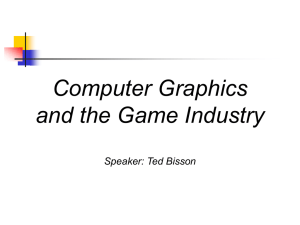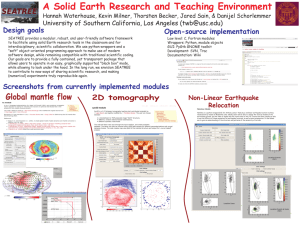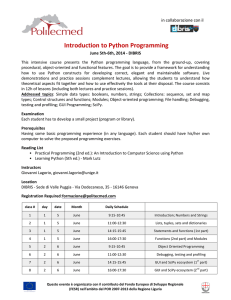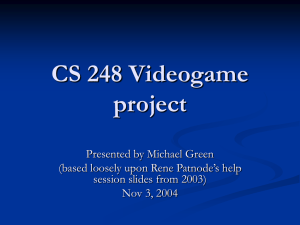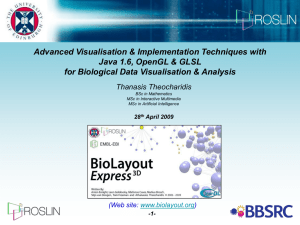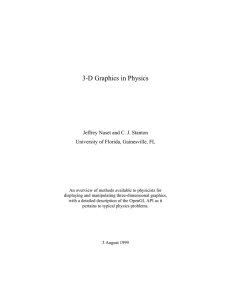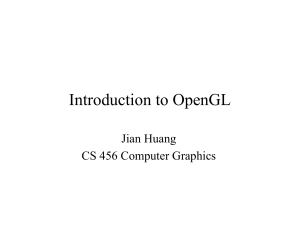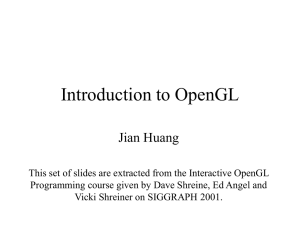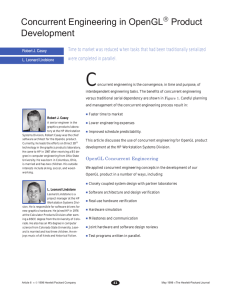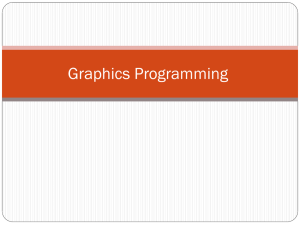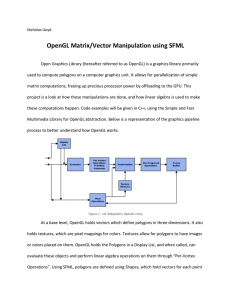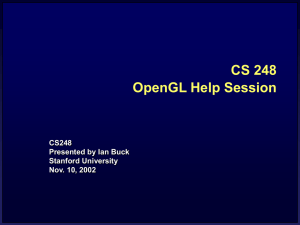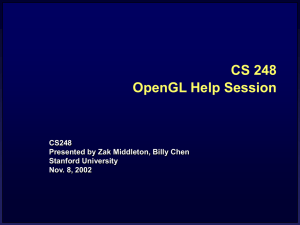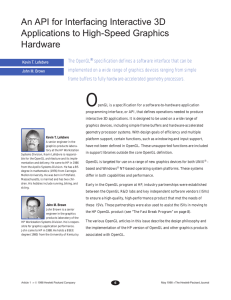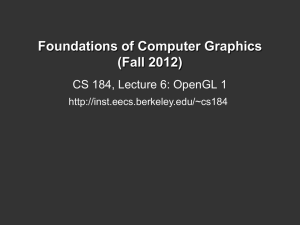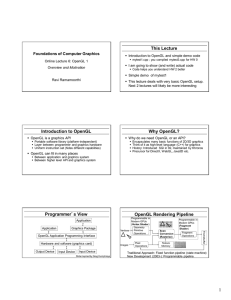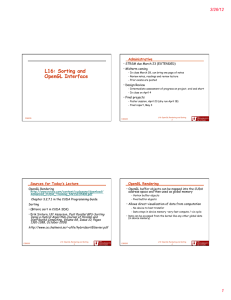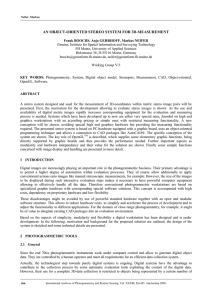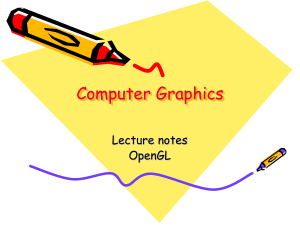CourseProject
advertisement
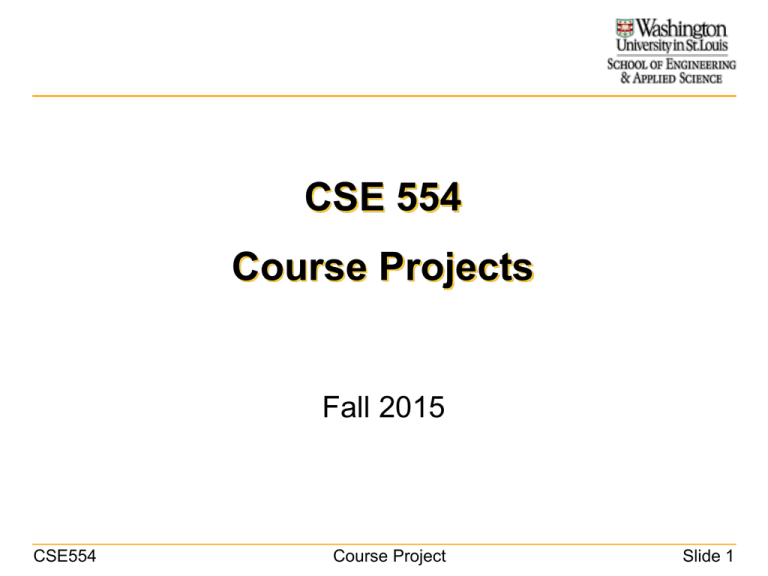
CSE 554 Course Projects Fall 2015 CSE554 Course Project Slide 1 Basic Requirement • Using geometric algorithms to solve real-world problems in biomedicine – Not limited to algorithms in the Modules – Not necessary to completely solve the problem, but need to show sufficient progress towards a solution • Distributable tool – Implemented in mainstream languages: C/C++, Java, Python, etc., or as plug-ins to existing software (e.g., ImageJ, Chimera) • Prototyping in Mathematica is recommended – A graphical user interface (GUI) may be required CSE554 Course Project Slide 2 Guidelines • Individual or in pairs – Requirements will be higher for team projects • Choose any language you prefer – OK to use existing packages/libraries, but need to demonstrate sufficient effort (i.e., algorithm design, coding) by yourself CSE554 Course Project Slide 3 Finding a problem • Avoid problems that are too simple – E.g., edge detection, image blurring, or anything that can be solved by a few Matlab/Mathematica/Python commands. • … or too hard – E.g., automatic segmentation of X, a complete system for doing Y, etc. • If you find a problem by yourself, I expect to have at least one conversation with you before I accept your proposal. CSE554 Course Project Slide 4 Finding a problem • Pick a problem mentioned today – Tracking cornea ulcer (Joel Palko) – Measuring sperm cell length (Mollie Manier) – Depth measurement on scapula (Daniel Leib) – Post processing of segmented MRI skulls (Gary Skolnick) CSE554 Course Project Slide 5 Finding a problem • Where to look for your own topic: – Your friends who work on image-related research – Faculty in Med School, BME, Biology, Chemistry, etc. • Many faculty working on imaging can be found through Imaging Science Pathway: http://imagingpathways.wustl.edu/ – Open problems of current interest • Check for research papers in imaging-related conferences (e.g. MICCAI) and journals (e.g., IEEE TMI) • Make sure you can find sufficient data to develop and test your tool. CSE554 Course Project Slide 6 Finding a problem • Example problems in the past DNA Gel Electrophoresis Analyzing Tool (Gabriel Stancu) CSE554 Course Project Slide 7 Finding a problem • Example problems in the past Measuring small bowel length (Billy Bennett) CSE554 Course Project Slide 8 Finding a problem • Example problems in the past Analyzing 3D cell shape in 2-photon microscopy (Aron Lurie and Daniel Melzer) CSE554 Course Project Slide 9 Finding a problem • Example problems in the past Registering deforming heart surfaces (Christopher Gloschat) CSE554 Course Project Slide 10 Project Proposal • Due: Nov. 2 (in one week) by email to instructor • Contents – What is the problem – What are the required and wish-list features – Timeline of development (e.g., milestones) – Choice of presentation dates (Nov 30 or Dec 2) • Preference of one date, or fine with either date. CSE554 Course Project Slide 11 Final Presentation • Dates: Nov 30 (Monday) or Dec 2 (Wednesday) • A short in-class live demo of what you have accomplished • 80% of course project grade CSE554 Course Project Slide 12 Project Hand-in • Due: Dec 7 (Monday) • Contents – Source code, executable tool (or plug-in), and test data – Project report • What required/wishlist features you have accomplished • Description of core algorithms, significant coding components, GUI development • A clearly-written Readme the describes how to use your tool • Any known bugs and future work • 20% of course project grade CSE554 Course Project Slide 13 Helpful Materials • 3D programming – OpenGL: Industrial standard 3D library for C/C++ • The “red book”: OpenGL Programming Guide – Online version with code: http://www.opengl.org/documentation/red_book/ • Great tutorial lessons: http://nehe.gamedev.net/lesson.asp?index=01 – Jogl: Java bindings for OpenGL • Docs, samples, forums: http://jogamp.org/jogl/www/ • GUI programming in C++ – Qt: http://qt.nokia.com/products/ – FLTK: http://www.fltk.org/ CSE554 Course Project Slide 14
